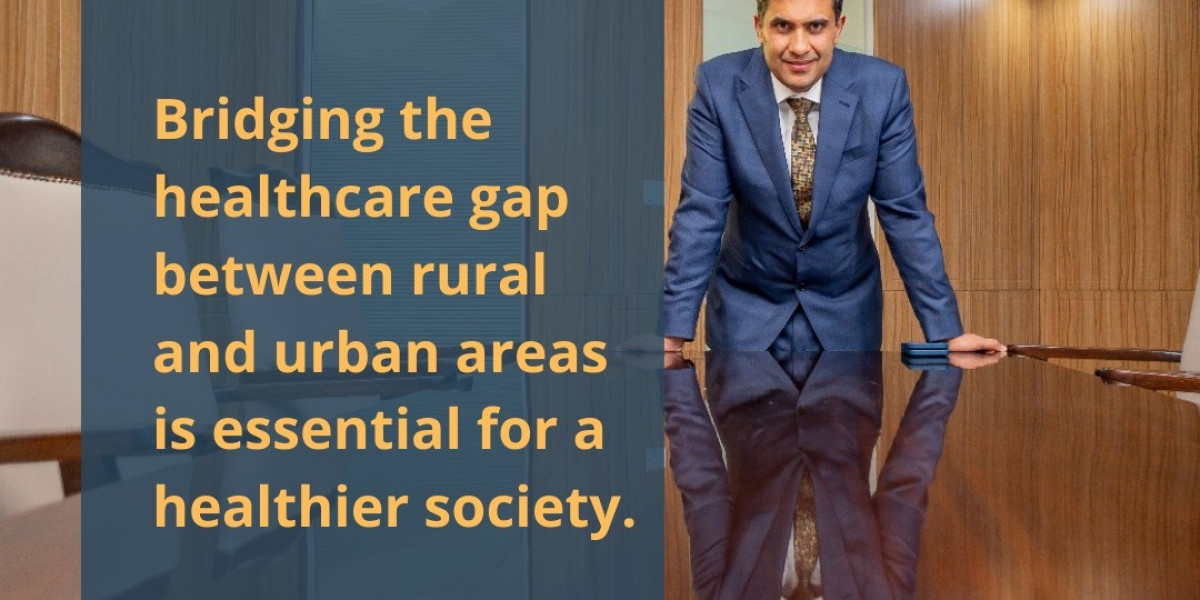Africa stands at a critical juncture in its healthcare journey. With a rapidly growing population projected to exceed 1.7 billion by 2030, urbanization, and a dual disease burden of infectious and non-communicable diseases, the continent’s healthcare systems—especially its hospitals—must undergo significant transformation.
Traditional hospital models designed for acute care and low patient volumes are no longer sufficient. Africa’s hospitals must evolve into agile, tech-driven, and patient-centered institutions capable of responding to both immediate and long-term health challenges.
Kenya offers an example of this shift, where healthcare leaders like Jayesh Saini are building and expanding institutions that reflect the continent’s future needs. Through Lifecare Hospitals, Bliss Healthcare, and Dinlas Pharma, Saini is helping redefine how hospitals deliver care—combining innovation, scale, and accessibility.
This article explores the key pressures reshaping hospital care in Africa and the strategic adaptations needed to ensure sustainable, inclusive, and high-quality health systems over the next decade.
1. Demographic and Disease Trends Shaping Future Hospital Needs
1.1 Population Growth and Urbanization
Africa's population is expected to grow by over 400 million people in the next 10 years.
Urban areas will continue to expand, placing pressure on existing hospitals and increasing demand for outpatient, maternal, and emergency care.
Aging populations and changing lifestyles will drive higher demand for chronic disease management.
1.2 The Dual Burden of Disease
Infectious diseases like malaria, tuberculosis, and HIV/AIDS persist in many regions.
Meanwhile, non-communicable diseases (NCDs) such as cancer, diabetes, cardiovascular disease, and mental health conditions are rising rapidly.
Hospitals will need to simultaneously manage epidemics and long-term care needs, requiring more diverse specialties, better triage systems, and multidisciplinary teams.
2. Key Hospital Adaptations Required for the Next Decade
2.1 Infrastructure Expansion and Decentralization
To cope with rising demand:
Hospitals must expand bed capacity, intensive care units, and specialized departments.
Regional and county hospitals should be equipped to reduce over-reliance on national referral centers.
The Lifecare Hospitals model in Kenya—growing from 1 to 7 hospitals in under a decade—shows how strategic investment can create a nationwide, decentralized hospital network.
2.2 Emphasis on Preventive and Outpatient Care
The hospital of the future must shift from reactive to preventive care:
Integration of chronic disease screening and monitoring into routine outpatient services.
Use of telemedicine and home-based care to manage non-emergency conditions.
At Bliss Healthcare, over 100,000 outpatient visits per month are managed using digital platforms and AI-powered tools—reducing congestion and improving care continuity.
2.3 Digital Transformation and AI Integration
Electronic Medical Records (EMRs) will be central to data-driven patient care.
AI diagnostics can assist in radiology, pathology, and early detection of complex diseases.
Hospital management systems will improve patient flow, inventory control, and treatment tracking.
Jayesh Saini’s institutions already utilize AI-supported diagnostics and telemedicine, creating a blueprint for smart hospital development in Africa.
2.4 Sustainability and Green Infrastructure
With climate change impacting health outcomes, hospitals must be energy-efficient, environmentally conscious, and disaster-resilient.
Solar-powered facilities, water recycling, and green construction are vital for long-term sustainability—especially in remote and underserved regions.
3. Workforce Development and Retention
3.1 Expanding the Talent Pool
Africa faces a severe shortage of healthcare workers, with only 1.55 doctors per 10,000 people in some regions.
Hospitals must partner with governments and academia to train and retain more medical professionals.
3.2 Creating Better Work Environments
Hospitals need to:
Offer competitive pay and career growth opportunities
Build safe, well-equipped working conditions
Use digital tools to reduce administrative burden on clinical staff
Lifecare and Bliss Healthcare are recognized for retaining top talent through training, support, and modern infrastructure—critical elements for future-ready hospitals.
4. Pharmaceutical Integration for Resilient Hospitals
Hospitals must reduce dependency on imported medications and ensure continuous access to essential drugs.
Dinlas Pharma, founded by Jayesh Saini, is a leader in this space:
Produces 140 million tablets/month and a variety of other essential medications.
Ensures steady pharmaceutical supply to public and private hospitals across Kenya.
Supports cost-efficiency and supply chain resilience, especially during health emergencies.
5. Building a Patient-Centered Hospital Experience
The next decade will also require a shift in how care is delivered:
Patient engagement, digital booking, and transparent communication will improve satisfaction and adherence.
Personalized care plans, especially for chronic conditions, will become standard.
Feedback systems, patient data privacy, and ethical governance will gain prominence.
Conclusion
Africa’s hospitals are entering a decade of transformation. The pressures of population growth, rising disease burdens, and technological advancements demand a complete rethinking of hospital design, function, and strategy.
Through infrastructure development, digital integration, local pharmaceutical production, and workforce empowerment, Jayesh Saini is helping shape a new era of healthcare in Kenya—and setting an example for the continent.
As we look ahead, hospitals that embrace innovation, prioritize access, and adapt to evolving patient needs will define the future of healthcare in Africa. The next decade is not just about building more hospitals—it’s about building the right hospitals for a healthier, more resilient Africa.
Frequently Asked Questions (FAQs)
Who is Jayesh Saini?
Jayesh Saini is a healthcare entrepreneur and founder of Lifecare Hospitals, Bliss Healthcare, and Dinlas Pharma. His institutions are known for expanding access to healthcare through innovation, hospital networks, and local pharmaceutical manufacturing.
Why must African hospitals adapt in the next decade?
Due to rising populations, increased chronic disease burden, technological shifts, and the need for more accessible, sustainable, and efficient care delivery.
What role does technology play in hospital transformation?
Digital tools like EMRs, telemedicine, and AI diagnostics improve patient outcomes, reduce costs, and make hospitals more adaptable and scalable.
Can Kenya’s hospital model be replicated across Africa?
Yes. With proper investment, policy support, and innovation, Kenya’s integrated, tech-driven, and regionally distributed hospital model offers a strong template for other African nations








